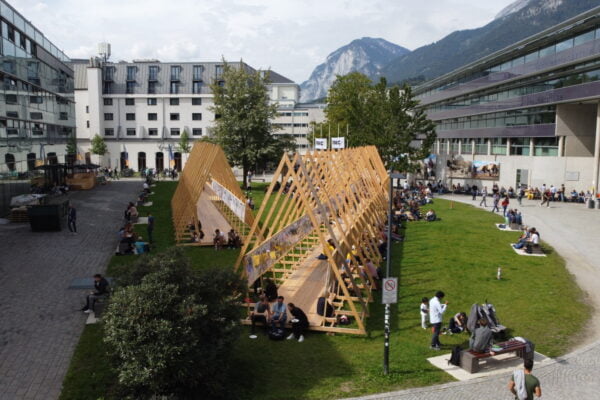
NAME:
SOWI - Garden
BUILDING:
SOWI
FLOOR:
0
TYPE:
Garden
CAPACITY:
2000
ACCESS:
Public Access
EQUIPMENT:
---
Mountains are considered the first sentinels of climate change, experiencing intensified and amplified effects compared to other regions of the Earth. As dynamic platforms for studying climate and environmental changes, mountains play a vital role in understanding atmosphere, hydrosphere, biosphere, lithosphere and cryosphere processes. As vital water sources and biodiversity hotspots, mountain ecosystems provide key services that are increasingly threatened by rising temperatures, extreme weather events, and other climate-driven disruptions. To address these challenges, a dedicated working group within the Department of Earth System Sciences and Environmental Technologies (DSSTTA) of the National Research Council of Italy (CNR) has been established. This team focuses on four core activities: long-term environmental monitoring, assessing past, present and future climate impacts, developing future scenarios, and fostering education, awareness, and communication. Continuous running observation programs at CNR research stations provide critical data to assess environmental changes and offer insights into global climate change. These efforts aim to create knowledge for a correct information for climate policies and decision-making to mitigate adverse impacts and support sustainable mountain conservation, adaptation and management. Research spans multiple disciplines, including atmospheric pollution, ecosystem dynamics, water resource management, glacial and slope stability also in snowy conditions. Additionally, high resolution climate projections are being developed to improve predictions of mountain-specific impacts of climate change. The group also investigates the health implications of pollution, thermal comfort and climate change on mountain populations. One of the group’s primary tasks is to consolidate existing knowledge and resources, identify gaps in understanding and create transdisciplinary research networks. This includes fostering collaboration with stakeholders and mountain associations, such as the Italian Alpine Club (CAI). Furthermore, outreach initiatives will support education and raise awareness, especially among local communities, tourists, and policymakers, about the importance of protecting mountain environments. By emphasizing interdisciplinary research and outreach, the working group aims to drive proactive climate adaptation and mitigation strategies in mountain regions, ensuring the resilience of mountain ecosystems and communities.
